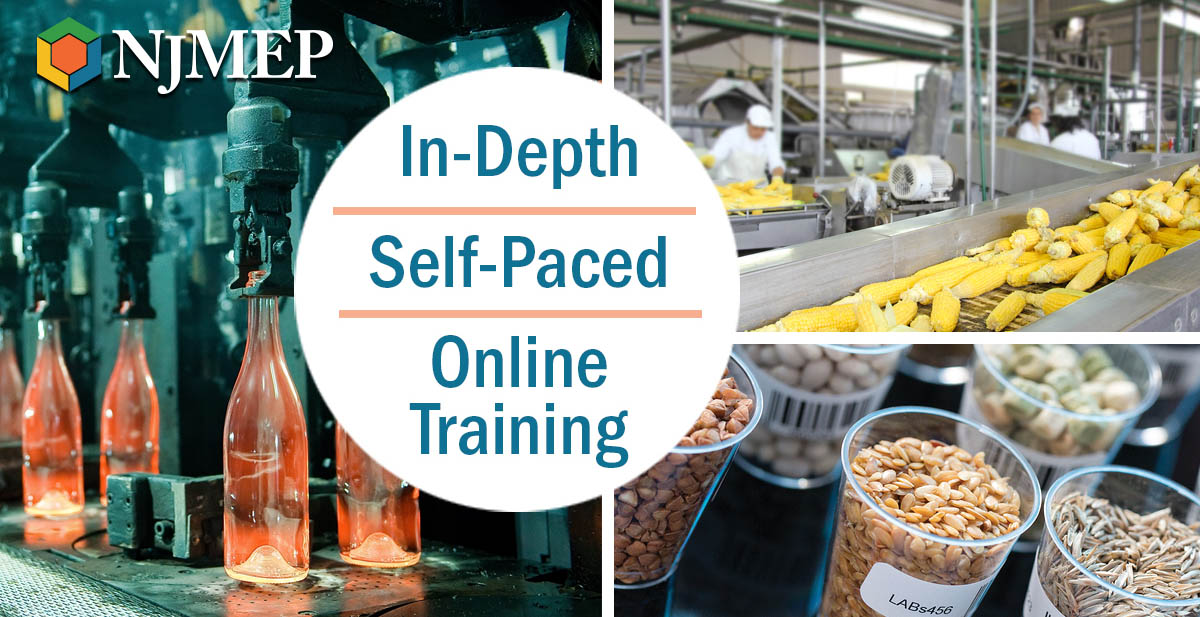Training - Food Manufacturing
Food Manufacturing – Self-Paced Online Courses

Safe, Sanitary, Online Food Safety Training!
NJMEP Self-Paced Online Food Training
These five (5) programs offer food and beverage manufacturers across the nation access to self-paced, in-depth online food training courses.
NJMEP's In-Depth, Self-Paced Online training programs each cost $200 Per Person
Use these courses to upskill employees and remain in compliance. These online training courses are a fantastic option for those looking for supplemental education or those that want to refresh their skills from the in-person training offered by NJMEP. Learn more about all five (5) online food training programs.
- Current Good Manufacturing Practices (cGMP) Readiness Online Course
- Food Allergens Online Course
- Food Defense Online Course
- Food Recalls and withdrawals Online Course
- HACCP Overview Online Course
Please note the following hardware and internet requirements needed for the online classes:
Hardware Requirements:
- PC computer running at 3.0 GHz CPU or greater with minimum of 4 GB RAM or better with Windows 7 or higher
- OR an Apple Macintosh 10.12 or higher
- 4GB RAM (8GB RAM or more is highly recommended)
- Broadband or modem connection for the internet
- Microphone and speakers (Webcam is strongly recommended)
- Updated anti-virus software
- Select Browser Checker to determine your system compatibility with Blackboard
Internet Requirements:
Web browser: Firefox or Google Chrome are supported browsers. It is extremely important that you use a supported browser when using Blackboard Learn so that all course content and the course tools properly display. We do not recommend Apple Safari or Microsoft Edge, and Microsoft Internet Explore is no longer a supported browser. We recommend installing both Firefox and Chrome browsers for use with our technologies, especially if one results in an error message. Please try using a different browser to see if you experience the same results. Select Browser Checker to determine your system compatibility with Blackboard.
Pop-up Blockers must be disengaged. Blackboard contains many features that are pop-ups and must be allowed for full functionality of the course.

